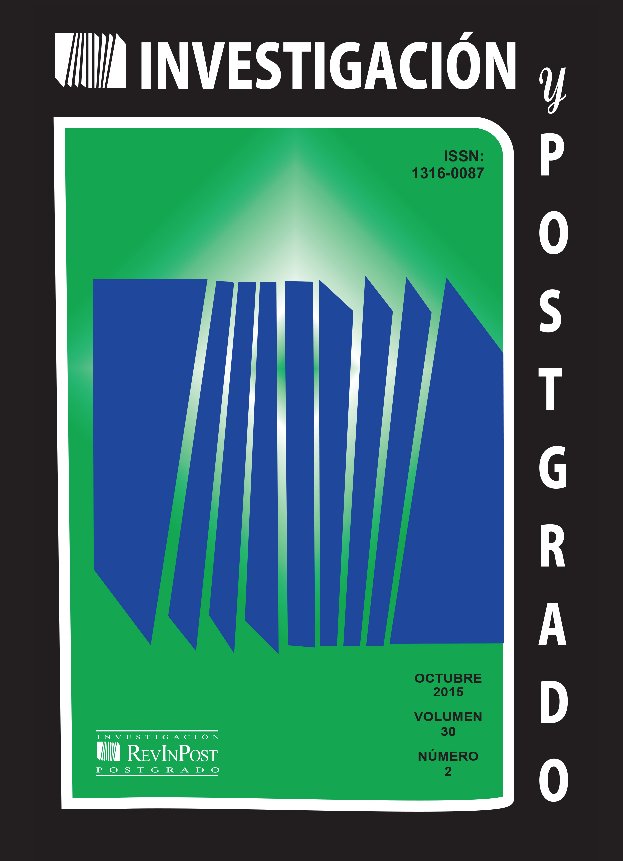FROM THE ATTRIBUTES OF THE "SUBJECT" TO THE ETHICS OF "BE"
Keywords:
attribute, subject, ethics, BeAbstract
The present philosophical essay aims to pose an ethical problem to reflect on the attributes of the Subject to the ethics of the Be, reconsidering that neither the psychological theories nor the philosophical positions have responded to what is the Being as a subject that is, not as Verb, but in his Do. To do this, elements of morality such as choosing (fundamental in the realization of Being), autonomy, will, conscience, free will, are managed, without aiming to delve into those elements; As well as the basic concepts of human realization: virtues and values. The brushstrokes that give rise to this theoretical reflection show that there is still a long way to go in the neurotic despair that is going through the man for trying to find himself, plus the rejection and denial of the other to invite him to participate in the commitment to live together and share the temporality And the situational in this tiny space that they call Earth.
Downloads
References
Allport, G. (1970). Psicología de la personalidad. Buenos Aires: Paidós.
Baines, J. (1998). Moral para el siglo XXI. Madrid: Xistral Editores.
Bonete, E. (2010). Neuroética práctica. Bilbao: Desclée de Brouwer.
Calzadilla, R. (2010). La crisis humana como una crisis en la formación de valores. SAPIENS, 11(2), 69-86.
Cortina, A. (2013). ¿Para qué sirve realmente…? La ética. Barcelona, España: Paidós.
Cullen, C. (1991). La educación de la conciencia moral: Aporías de una profesión y espacios para una ética. Madrid: Editorial Center La Educación.
Echeverría, J. (1997). Una ética para tiempos de luto. Diálogos, 69, 17-61.
Festinger, L. (1975). La teoría de la disonancia cognoscitiva. Madrid: Instituto de Estudios Políticos.
Figueiredo, L. (2001). El hombre con atributos o humanismo cívico de Alejandro Llano. Thémata. Revista de Filosofía, 26, 273-278.
Fischer, R. (2014). Why it doesn’t matter whether the virtues are truth-conducive. Synthese, 191(6), 1059-1073.
Goerke, M. y Frey, D. (2004). It's not my fault-but only I can't change it. Counterfactual and prefactual thoughts managers. Journal of Applied Psychology, 89(29), 279-292.
González, J. (1997). El Ethos, destino del hombre. México: Fondo de Cultura Económica.
Grayling, A. (2002). El sentido de las cosas. Filosofía de la vida cotidiana. Buenos Aires: Emecé Editores.
Huber, G. (1996). Toma de decisiones en la gerencia. México: Trillas.
Huffman, K. (2008). Psicología en acción. México: Limusa.
Knoke, D. y Kuklinski, J. (1982). Network analysis. London: Sage.
Kopp, S. (2005). El colgado: la psiquiatría y las fuerzas de la oscuridad. Buenos Aires: Alfa Argentina.
Mandeville. B. (1982). La fábula de las abejas o los vicios privados hacen la prosperidad pública. México: Fondo de Cultura Económica.
Marinoff, L. (2007). El ABC de la felicidad. Barcelona, España: Ediciones B.
Martin, V. (2007). Ética, educación y construcción de convivencia. Revista Educación en Valores, 8, 44-49.
May, R. (1990). El dilema del hombre. México: Gedisa.
Melendo, M. (1992). Comunicación e integración personal. Santander: Sal Terrae/ Proyecto.
Myers, D. (1996). Social Psychology. New York: The McGrw-Hill.
Raz, J. (2001). La ética en el ámbito público. Barcelona, España: Gedisa.
Savater, F. (2012). Ética de urgencia. Barcelona, España: Planeta.
Singer, P. (2002). Una vida ética. México: Taurus.
Steinfath, H. (2013). Nosotros y yo. Reflexiones sobre la fundamentación de las normas morales. Universitas Philosophica, 60(30), 51-81.
Verano, L. (2012). El lugar del otro: el problema de la alteridad en la filosofía de Marleau-Ponty. Universitas Philosophica, 58(29), 251-275.
Voltolini, A. (2012). All the exitences that there are. Dispunatio, 4(32), 361-383.
Watzlawick, P. (1984). El arte de amargarse la vida. Barcelona, España: Herder.
Downloads
Published
How to Cite
Issue
Section
License
Copyright (c) 2015 Universidad Pedagógica Experimental Libertador

This work is licensed under a Creative Commons Attribution-NonCommercial-ShareAlike 4.0 International License.
Investigación y Postgrado está bajo una licencia internacional Creative Commons Attribution-NonCommercial-ShareAlike 4.0 .
La política de acceso abierto y de licencias con “algunos derechos reservados” no niega la propiedad intelectual ni los derechos de los autores respecto a sus artículos, al contrario, los respeta. Es por ello que:
No se reservan los derechos de publicación de los artículos. Los autores podrán distribuir su artículo en cualquier otro medio, siempre y cuando sea sin fines de lucro. Debe informar al Editor de esta nueva publicación y debe dar el crédito a la revista Investigación y Postgrado.













